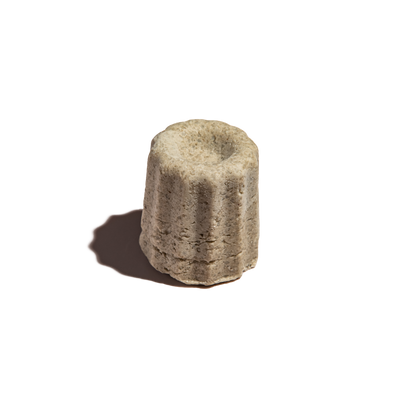Will Silicones Ruin Your Hair?
We unpack the long-term effects.
We all want our hair to look good, and it's no surprise that we are willing to invest in products to achieve that. From the latest hair masks and oils, to conditioners that promise luxurious locks, there are countless choices out there.
But how do you know what works and what doesn't? One of the key components of understanding how certain products may shape the health of your hair is by looking into their ingredients list. In particular, silicones are a common culprit when it comes to long-term damage.
So let's grab a magnifying glass and explore what silicones can do to your hair. Then you can determine if they're worth the risk in pursuit of temporarily luscious hairdos—or if there are better alternatives out there.

What are silicones?
So, you've heard of silicones being bad for your hair—but what are they, exactly? Well, silicones are a type of synthetic polymer commonly used in conditioners to give the hair a glossy and sleeker look. Silicones work by creating a coating around each individual strand of hair, trapping the moisture within and making your hair feel silky and smooth.

How Do Silicones Destroy Hair Fibers?
While it might give you that perfect slick feeling immediately, this also means that the silicone is closing off the cuticles, preventing needed moisture from absorbing into the strands over time. As these cuticles remain sealed, your hair will become dry, brittle and prone to breakage—the exact opposite of what you wanted in the first place!
What’s more, this coating can also be difficult to remove even with shampooing. This involves a deep cleanse using a clarifying treatment or an apple cider vinegar rinse that can break down some silicones without stripping your scalp. Doing this once a week will help keep your fibers safe.
What Are the Signs of Damage From Silicones?
Silicones do not easily break down naturally and it's why they are used to form a waterproof coating on your hair strands. On the surface, this coating can make hair appear shinier and softer. The truth is, silicones cause more harm than good in the long run as they can build up on hair over time and lead to dryness, limpness, and lack of shine.
Other signs of silicone damage include:
-
Hair that becomes excessively oily quickly after shampooing
-
Hair feeling heavy with product buildup
-
Your normal styling products not performing well
-
Faded colour from dyes
While these signs may take a while to appear, once observed you will know that it’s time to switch to a silicone free shampoo or conditioner.
How to identify silicones on shampoo labels
Some examples of silicones that you may find listed on shampoo labels include:
- Dimethicone
- Cyclomethicone
- Phenyl trimethicone
- Amodimethicone
- Trimethylsilylamodimethicone
An easier way to recognise silicones is to look out for ingredients ending with -one!
Alternatives to Conditioners to Keep Your Hair Healthy

No one wants to sacrifice having silky, smooth hair, but who wants unhealthy hair in the long run either? You don’t have to compromise — here are our top 4 ingredient picks to look out for to help you maintain healthy hair without the bad stuff.
NATURAL OILS
Cold-pressed oils like Coconut, Jojoba and Avocado are great for adding moisture and healing dryness. Black Castor and Broccoli Seed oil is notable for assisting to tame frizz and condition curly and textured hair. We use them in our solid conditioners and also have hair oils available to use as a post shampoo treatment!
FATTY ALCOHOLS
These include ingredients such as Cetyl Alcohol, Stearyl alcohol and Behenyl alcohol which are derived from coconut, palm or rapeseed oil and help to soften and smoothen the hair without drying it out. They are not to be confused with denatured alcohol which is used as a solvent in some personal care products, and is incredibly drying to the skin. We use them in our solid conditioners!
PANTHENOL (Vitamin B5)
Panthenol is a humectant, which means it attracts and holds onto moisture. This ingredient is also known for its ability to penetrate the hair shaft and strengthen the hair from within. It can help to reduce breakage, split ends, and other forms of damage, leading to stronger, healthier hair.
HYDROLYZED WHEAT PROTEIN
Naturally derived from wheat, this ingredient helps to smoothen the hair and reduce frizz by forming a protective film over the hair shaft, which can help to reduce static and keep the hair looking smooth and shiny. It also helps to improve the hair's ability to retain moisture, which can help to keep the hair hydrated and prevent dryness and damage.
In the end, it’s up to you to make sure your hair is healthy and strong. It’s worth taking the time to do a bit of research and buy products that use healthy ingredients, without relying on silicones or other synthetic chemicals. If you’re concerned about how harsh ingredients could be affecting your hair, start by changing up your regular routine and keeping an eye out for natural-based products.
It also helps to be aware of your individual hair needs, and to tailor your haircare routine to them. That way, you’ll be able to give your strands the TLC they need, while avoiding any potential damage from silicones or other harmful ingredients. After all, your hair deserves the best! Speak to us if you want some personalised advice. We are here to help!









Leave a comment